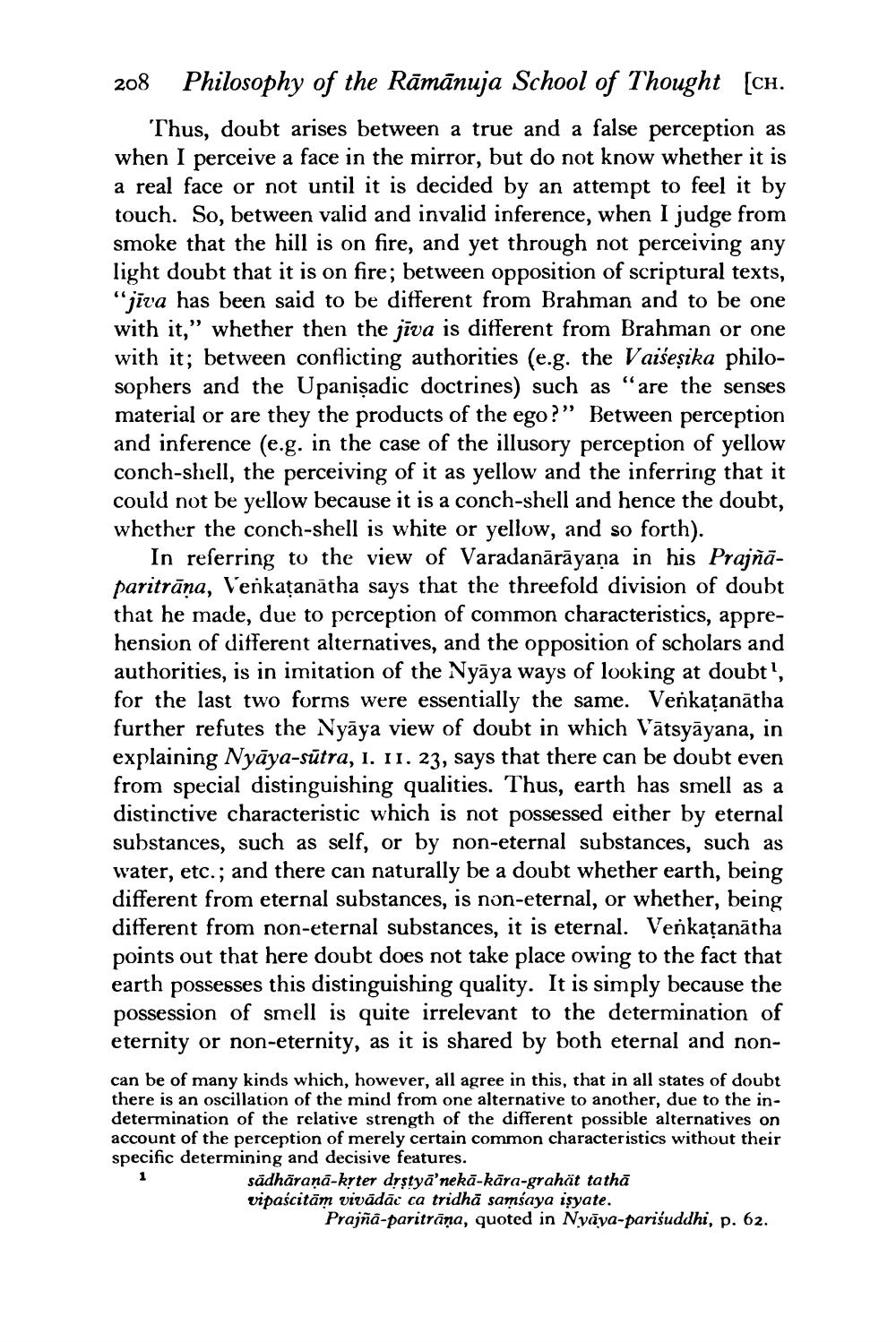________________
208 Philosophy of the Rāmānuja School of Thought (ch.
Thus, doubt arises between a true and a false perception as when I perceive a face in the mirror, but do not know whether it is a real face or not until it is decided by an attempt to feel it by touch. So, between valid and invalid inference, when I judge from smoke that the hill is on fire, and yet through not perceiving any light doubt that it is on fire; between opposition of scriptural texts, "jiva has been said to be different from Brahman and to be one with it,” whether then the jiva is different from Brahman or one with it; between conflicting authorities (e.g. the Vaišeșika philosophers and the Upanişadic doctrines) such as “are the senses material or are they the products of the ego?” Between perception and inference (e.g. in the case of the illusory perception of yellow conch-shell, the perceiving of it as yellow and the inferring that it could not be yellow because it is a conch-shell and hence the doubt, whether the conch-shell is white or yellow, and so forth).
In referring to the view of Varadanārāyaṇa in his Prajñāparitrāna, Verkațanātha says that the threefold division of doubt that he made, due to perception of common characteristics, apprehension of different alternatives, and the opposition of scholars and authorities, is in imitation of the Nyāya ways of looking at doubt', for the last two forms were essentially the same. Venkațanātha further refutes the Nyāya view of doubt in which Vātsyāyana, in explaining Nyāya-sūtra, 1. 11. 23, says that there can be doubt even from special distinguishing qualities. Thus, earth has smell as a distinctive characteristic which is not possessed either by eternal substances, such as self, or by non-eternal substances, such as water, etc.; and there can naturally be a doubt whether earth, being different from eternal substances, is non-eternal, or whether, being different from non-eternal substances, it is eternal. Venkațanātha points out that here doubt does not take place owing to the fact that earth possesses this distinguishing quality. It is simply because the possession of smell is quite irrelevant to the determination of eternity or non-eternity, as it is shared by both eternal and noncan be of many kinds which, however, all agree in this, that in all states of doubt there is an oscillation of the mind from one alternative to another, due to the indetermination of the relative strength of the different possible alternatives on account of the perception of merely certain common characteristics without their specific determining and decisive features.
sādhārana-krter drstyā'nekā kāra-grahät tathā vipaścitām vivādāc ca tridhā samsaya işyate.
Prajña-paritrāna, quoted in Nyāya-parisuddhi, p. 62.




